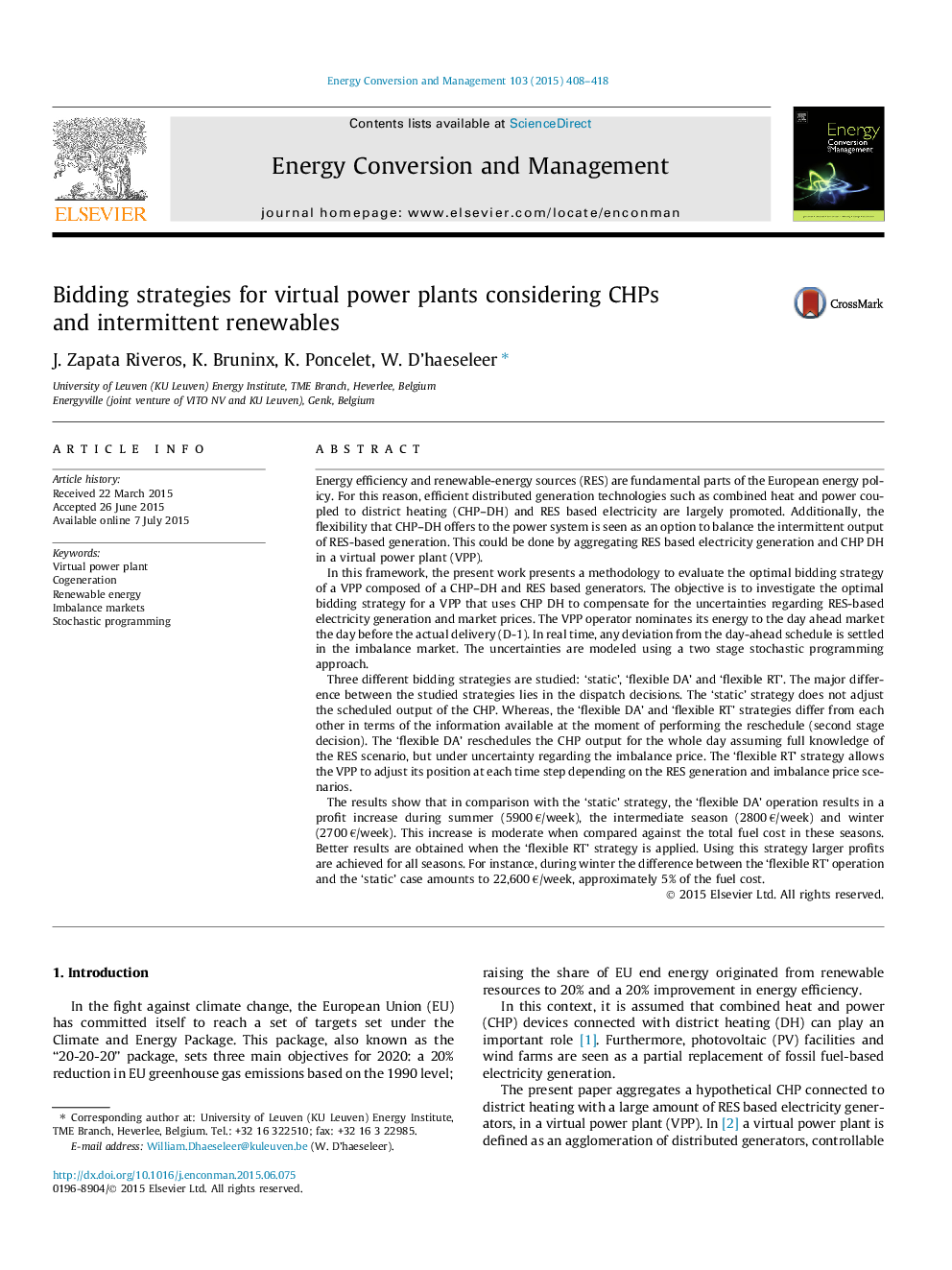| کد مقاله | کد نشریه | سال انتشار | مقاله انگلیسی | نسخه تمام متن |
|---|---|---|---|---|
| 771695 | 1462859 | 2015 | 11 صفحه PDF | دانلود رایگان |

• A stochastic optimization evaluates the optimal bidding strategy of a VPP.
• Three different strategies were assessed: ‘static’, ‘flexible DA’ and ‘flexible RT’.
• The ‘flexible RT’ attains the largest profits. It adapts the VPP output in real-time.
Energy efficiency and renewable-energy sources (RES) are fundamental parts of the European energy policy. For this reason, efficient distributed generation technologies such as combined heat and power coupled to district heating (CHP–DH) and RES based electricity are largely promoted. Additionally, the flexibility that CHP–DH offers to the power system is seen as an option to balance the intermittent output of RES-based generation. This could be done by aggregating RES based electricity generation and CHP DH in a virtual power plant (VPP).In this framework, the present work presents a methodology to evaluate the optimal bidding strategy of a VPP composed of a CHP–DH and RES based generators. The objective is to investigate the optimal bidding strategy for a VPP that uses CHP DH to compensate for the uncertainties regarding RES-based electricity generation and market prices. The VPP operator nominates its energy to the day ahead market the day before the actual delivery (D-1). In real time, any deviation from the day-ahead schedule is settled in the imbalance market. The uncertainties are modeled using a two stage stochastic programming approach.Three different bidding strategies are studied: ‘static’, ‘flexible DA’ and ‘flexible RT’. The major difference between the studied strategies lies in the dispatch decisions. The ‘static’ strategy does not adjust the scheduled output of the CHP. Whereas, the ‘flexible DA’ and ‘flexible RT’ strategies differ from each other in terms of the information available at the moment of performing the reschedule (second stage decision). The ‘flexible DA’ reschedules the CHP output for the whole day assuming full knowledge of the RES scenario, but under uncertainty regarding the imbalance price. The ‘flexible RT’ strategy allows the VPP to adjust its position at each time step depending on the RES generation and imbalance price scenarios.The results show that in comparison with the ‘static’ strategy, the ‘flexible DA’ operation results in a profit increase during summer (5900 €/week), the intermediate season (2800 €/week) and winter (2700 €/week). This increase is moderate when compared against the total fuel cost in these seasons. Better results are obtained when the ‘flexible RT’ strategy is applied. Using this strategy larger profits are achieved for all seasons. For instance, during winter the difference between the ‘flexible RT’ operation and the ‘static’ case amounts to 22,600 €/week, approximately 5% of the fuel cost.
Journal: Energy Conversion and Management - Volume 103, October 2015, Pages 408–418